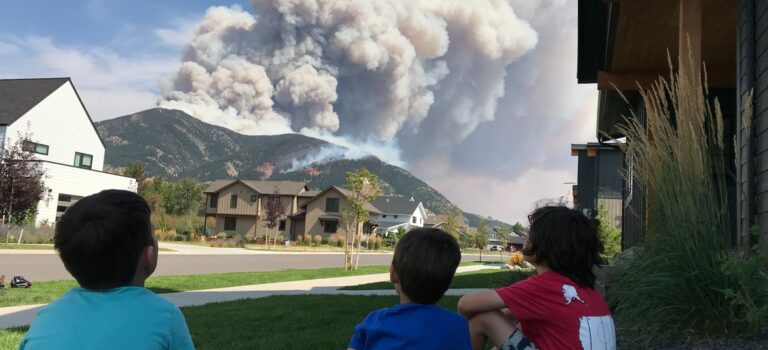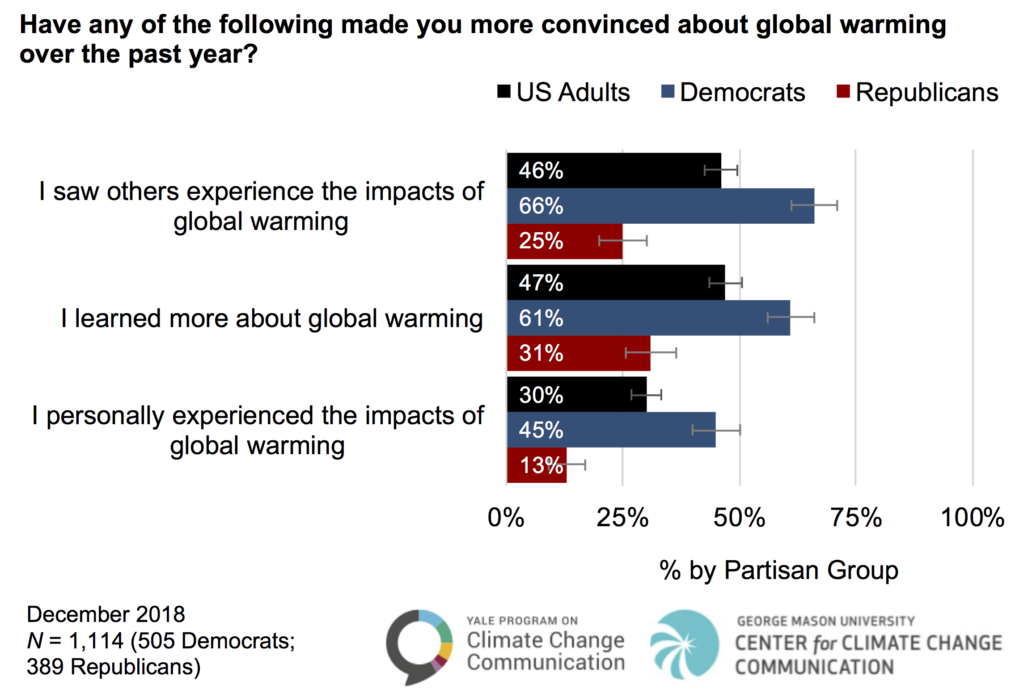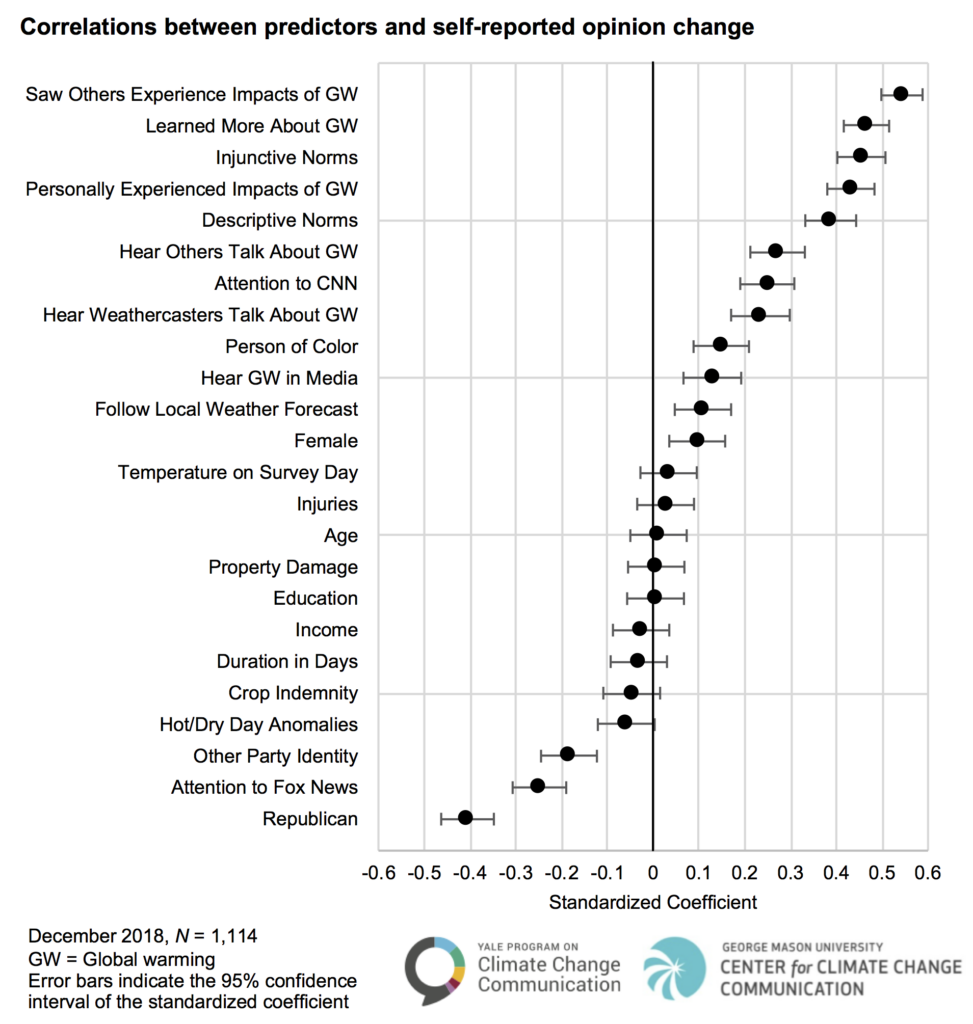Peer-Reviewed Article · Sep 7, 2022
Experience with global warming is changing people’s minds about it
By Matthew Ballew, Jennifer Marlon, Matthew Goldberg, Edward Maibach, Seth Rosenthal, Emily Aiken and Anthony Leiserowitz
Filed under: Beliefs & Attitudes

We are pleased to announce the publication of a new article, “Changing minds about global warming: vicarious experience predicts self-reported opinion change in the USA” in the journal Climatic Change.
Americans are changing their minds about global warming. Public understanding and worry about global warming has grown over the past decade. However, less is known about why Americans are changing their views. In this study, we explored Americans’ self-reported reasons for changing their minds about global warming, and tested the extent to which these reasons predict opinion change alongside other factors that have been found to contribute to opinion change, including political views, media sources, perceptions of social norms, and exposure to extreme weather.
In a preliminary study, we analyzed qualitative data from three nationally representative surveys of the US public. Americans were asked whether they had changed their global warming opinions, and if so, why? The most commonly given reasons included learning more about global warming, seeing or hearing about its effects (vicarious experience), and personally experiencing its effects (direct experience).
We further explored these reasons in a 2018 nationally representative survey of 1,114 US adults and found that nearly half reported that they learned more about global warming (47%) or saw others experience its impacts (46%), while fewer said they had personally experienced its impacts (30%). Democrats were also more likely than Republicans to say they learned more about global warming, saw others experience impacts, and had personally experienced impacts.

We then tested the extent to which different factors predicted these self-reported changes in global warming opinions. As shown in the figure below, perceived experience with global warming — particularly seeing/hearing others experience its effects (vicarious experience) — emerged as a top correlate. We found similar results even when statistically controlling for other known influences on climate change opinions including perceptions of social norms and attention to partisan-leaning media like Fox News.
Among Republicans, perceived personal experience was one of the strongest predictors of self-reported opinion change, whereas among Democrats, learning more about global warming was among the strongest predictors. Also, among Republicans, perceiving social norms supportive of climate action was especially associated with positive self-reported opinion change, but attention to the Fox News Channel was associated with negative opinion change. Interestingly, hearing weathercasters talk about global warming was associated with positive opinion change among Democrats only.
These results speak to the power of perceived experience with global warming (personal and vicarious), social norms, interpersonal communication, and the media. Although this research is exploratory and uses self-reported cross-sectional data, it suggests that personalizing and localizing the experience of climate impacts, like extreme weather (leveraging experiential learning), as well as enhancing the perceived norm that most people care about the issue and support taking action (leveraging social norms), may be important communication strategies. Place-based education strategies that communicate the local effects of global warming in ways that can be directly experienced or felt may be fruitful (Myers et al., 2013), and may be especially effective when paired with trusted local weathercasters (Maibach et al., 2016). With extreme weather events increasing in frequency and severity, it may be helpful to amplify personal impact stories, which have been shown to be effective in changing the global warming opinions of political moderates and conservatives (Gustafson et al., 2020).
Although media outlets casting doubt on climate science can exacerbate dismissive climate beliefs in the public, other communications can counteract negative media effects and change the narrative on climate change by amplifying personal stories and encouraging people to discuss their pro-climate views with others, especially with family and friends. Such communications can personalize and localize the issue, increase perceptions that others have experienced its effects, and strengthen normative beliefs that other people care about the issue. Together, these strategies may encourage more Americans to change their minds about global warming in a positive direction.
The full article is available here to those with a subscription to the journal Climatic Change, and a preprint is here. If you would like to request a copy, please send an email to climatechange@yale.edu with the subject line: Request Changing Minds Paper.
